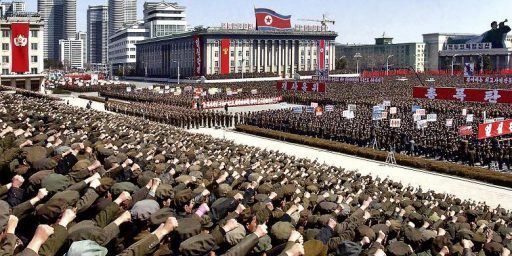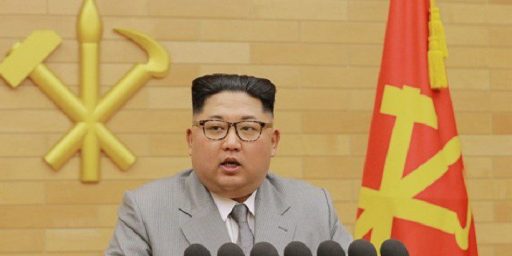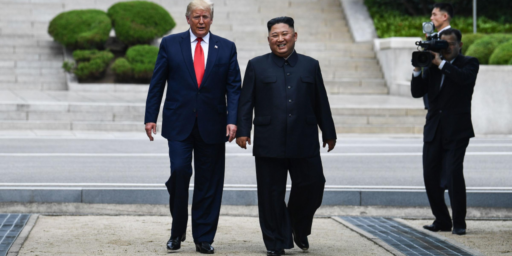The Price of Freedom in Iraq
SecDef Donald Rumsfeld has an interesting op-ed in today’s NYT.
This week, as we mark the one-year anniversary of the beginning of Operation Iraqi Freedom, it is useful to recount why we have fought. Not long ago I visited South Korea, just as the Korean government was debating whether to send troops to Iraq. In Seoul, I was interviewed by a Korean journalist who was almost certainly too young to have firsthand recollection of the Korean War. She asked me, “Why should Koreans send their young people halfway around the globe to be killed or wounded in Iraq?”
As it happened, I had that day visited a Korean War memorial, which bears the names of every American soldier killed in the war. On it was the name of a close friend of mine from high school, a wrestling teammate, who was killed on the last day of the war. I said to the reporter: “It’s a fair question. And it would have been fair for an American to ask, 50 years ago, `Why should young Americans go halfway around the world to be killed or wounded in Korea?’ ”
We were speaking on an upper floor of a large hotel in Seoul. I asked the woman to look out the window — at the lights, the cars, the energy of the vibrant economy of South Korea. I told her about a satellite photo of the Korean peninsula, taken at night, that I keep on a table in my Pentagon office. North of the demilitarized zone there is nothing but darkness — except a pinprick of light around Pyongyang — while the entire country of South Korea is ablaze in light, the light of freedom.
Korean freedom was won at a terrible cost — tens of thousands of lives, including more than 33,000 Americans killed in action. Was it worth it? You bet. Just as it was worth it in Germany and France and Italy and in the Pacific in World War II. And just as it is worth it in Afghanistan and Iraq today.
A couple of things strike me about this comparison. For one thing, the Korean War was rather unpopular, too. It was certainly “optional.” And after three years of nasty fighting and 33,000 American dead–out of a population of 152 million–we essentially achieved a stalemate. We’ve had American troops in Korea ever since–54 years and counting.
It’s interesting how much our frame of reference has changed in the past half century. Now, a war that took 21 days and cost under 200 American dead–out of a population of 290 million–is considered too costly. And an occupation that will take a little over a year that has so far cost a little over 300 lives is considered a quagmire and could topple a president.
It’s also worth noting that a year after we entered the Korean war, we still had two years of fighting to endure. And that one year after the war–indeed, ten and even twenty years after the war–one would not have considered South Korea a major success story. Our lack of patience and historical perspective–things of which I’m guilty on occasion myself–is rather amazing.






I don’t think we were involved in a struggle against world wide terrorism at the time during the whole Korean affair. Also, as I remember, we had the UN blessing on that little scuffle – unlike Iraq.
So, we have a war that was fought against the wishes of the world, based on a fabrication and massive embellishment of the evidence, resulting in an occupation that seems to based on a three stooges movie plot, that had absolutely nothing to do with the very real issue of terrorism that we face.
It’s not about patience and historical perspective, James. It’s about opportunity costs, facing the real problem of terrorism, and being lied to.